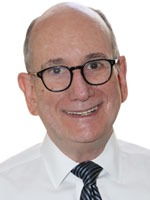Protecting people
A glimmer of hope for trial lawyers from three major corporations
I am often asked to describe what trial lawyers do, and my two-word answer is: “protect people.”
If I’m asked to elaborate, I reply that trial lawyers “Protect people from unsafe medicine, unsafe products and unfair business practices.”
If I’m asked to give more of an explanation, I refer to a 10-year-old commentary from UC Berkeley professor and former U.S. Labor Secretary Robert Reich. He said: “Either regulatory agencies have to be made tougher and more independent; and given the resources they need to protect the public, or we’ve got to rely on courts and private lawsuits to make sure companies have every financial incentive to protect the public. Absent both – tough regulators and the threat of private lawsuits – the public is at serious risk.”
We know well that in the past two years regulations have been relentlessly rolled back and regulatory agencies are weaker than ever. If you agree with Reich, that puts the responsibility to protect the public squarely on the shoulders of trial lawyers.
Unfortunately, it takes a long time for people to get the protections that come from the work done by trial lawyers and the slow pace can be discouraging.
If you need some uplifting news, I want to share with you three recent developments that give a glimmer of hope to trial lawyers who fight long and hard to protect people. They come directly from three large and powerful corporations that readers of this column know well and have brought countless lawsuits against: Google, General Motors and PG&E. The changes may be incremental, but the progress in the battle to protect people is real.
A few weeks ago, Google instituted a new employee policy and will no longer require its workers to settle disputes with the company through arbitration. Last year Google ended forced arbitration for sexual harassment and assault cases, but the new policy expands that practice to all worker disputes for all current and future employees. The company will post the policy change internally and update the contracts of new employees. Google’s change acknowledges that forced arbitration is bad policy.
General Motors
On February 28, the New York Times reported that General Motors is supporting a U.S. Senate bill that will direct the National Highway Traffic Safety Administration (NHTSA) to adopt a rule to address the problem of motorists forgetting to shut off a keyless vehicle. This has been a safety hazard for years. Since 2006, 28 people have been killed and 45 injured by carbon monoxide poisoning from keyless vehicles.
The legislation backed by GM will require automakers to include a feature that automatically shuts off an engine after a specified period of idling. The rule would apply to all keyless vehicles, which make up more than half of new cars sold in the United States.
General Motors says it “supports the spirit of the bill” and that “This legislation reflects GM’s continued dedication to advancing automotive safety.”
The paper reports that “Because they don’t need to turn a physical key, drivers can forget to shut off a keyless vehicle. Some motorists, particularly older ones, have left cars with the engines running in garages attached to homes, which have filled up with carbon monoxide and poisoned occupants, often while they slept.”
The legislation also addresses the danger of rollaway vehicles, a hazard heightened by keyless ignitions because a driver can leave with the key fob without putting the car into park.
PG&E
On March 1, the Los Angeles Times reported that “Nearly four months after California’s most devastating wildfire swept through Paradise and surrounding towns, Pacific Gas & Electric Co. has acknowledged that its equipment probably sparked the blaze that destroyed nearly 14,000 homes and killed 85 people, most of them elderly.” The deadly fire burned 153,000 acres.
PG&E released a statement that “The company believes it is probable that its equipment will be determined to be an ignition point of the 2018 Camp fire.”
The Wall Street Journal reported that PG&E had planned a safety overhaul of the line since 2013 but had repeatedly delayed the work, which never took place before the Camp fire.
John Simon, PG&E’s interim chief executive said, “We recognize that more must be done to adapt to and address the increasing threat of wildfires and extreme weather in order to keep our customers and communities safe.” PG&E confirmed to the Wall Street Journal a vow to do more to reduce the likelihood of wildfires. In February, it filed a wildfire-mitigation plan with state regulators that outlined its intent to substantially expand its tree-clearing practices, beef up inspections of its equipment and install more weather stations and cameras for earlier risk detection.
The Times reported that “Scores of lawsuits have been filed against the state’s biggest utility on behalf of people whose loved ones were killed, whose pets disappeared into the blazing wilderness and who lost everything they owned.”
Many CAALA members represent victims of the Camp fire and other devastating wildfires caused by the negligence of utility companies. Northern California trial lawyer Joe Cotchett said “It’s about time they come to the table and admit what everyone has known for a long time. The Camp fire is one more example of profits over safety.”
Agreeing to protect people doesn’t absolve corporations like Google, GM or PG&E from the harm they have caused to thousands of people, but it does underscore Robert Reich’s belief that trial lawyers and lawsuits make sure companies have every financial incentive to protect the public.
Stuart Zanville

Stuart Zanville is the Executive Director of the Consumer Attorneys Association of Los Angeles (CAALA). Contact him at (213) 487-1212 or by e-mail: stuart@caala.org.
Copyright ©
2025
by the author.
For reprint permission, contact the publisher: Advocate Magazine
